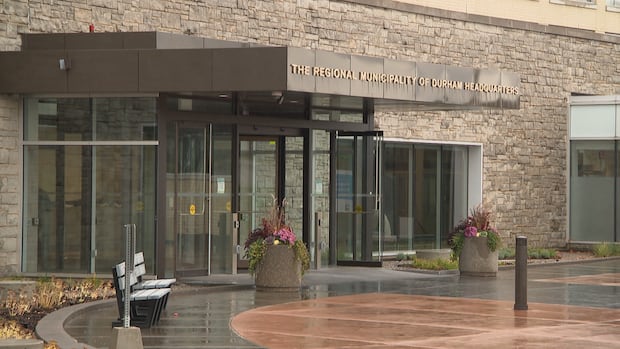Top Stories
Salvation Army Ends Housing Program Amid Funding Cuts, Landlords Sue

UPDATE: The Salvation Army is abruptly terminating its vital rental housing program in Durham Region, impacting over 200 individuals, including 88 adults and 114 children. This decision follows a funding withdrawal by the region, raising urgent concerns about the welfare of vulnerable tenants.
The program, launched in 2017, was designed to offer housing support through guaranteed rent payments to landlords. However, Durham Region ceased its financial support in May, prompting the Salvation Army’s decision to end the program this month. Gina Haggett, the charity’s divisional director for public relations in Ontario, confirmed the funding cut and expressed disappointment that the region did not allow for a transfer to another operator.
As Durham faces a homelessness crisis with approximately 964 people currently without shelter, the termination of this program leaves many in a precarious situation. “Our focus continues to be the people affected,” Haggett stated, emphasizing their commitment to working with tenants and landlords to minimize disruptions.
The fallout extends beyond tenant support; landlords are now facing significant financial losses. Jennifer Johnson, one of the landlords, has publicly announced plans to initiate legal action against the Salvation Army. She claims the charity failed to honor the terms of their rent guarantor agreement, including necessary repairs to her properties. Johnson described the situation as “heartbreaking” and “despicable,” citing extensive damages, including broken appliances and structural issues.
In a letter from the Salvation Army’s legal counsel, Johnson was informed that any responsibility for repairs falls on her as the landlord. “They’ve absolutely not lived up to the agreement,” she asserted, illustrating the deep rift between the charity and those who trusted it.
Another landlord, Zara Toony, is also contemplating legal action due to damages estimated at $100,000 across her properties. Toony expressed frustration over the lack of communication and accountability from the Salvation Army, stating, “I need a response.”
While the Salvation Army maintains that it has complied with agreements “in full,” the growing dissatisfaction among landlords underscores the urgent need for clarity and support in this challenging environment.
As the housing program concludes, tenants are left with uncertainty and anxiety. With no immediate alternative support in place, the situation raises critical questions about future housing availability in Durham Region.
Authorities confirm they are providing affected tenants with “timely information” and access to resources, but many are still left wondering what their next steps should be. The community is rallying around those impacted, but the clock is ticking as the program winds down.
This urgent situation calls for immediate attention and action from local authorities and community organizations to prevent further destabilization of those already at risk. The emotional and financial implications for tenants and landlords alike highlight the growing challenges of housing security in Durham Region.
Stay tuned as this story develops, and follow for updates on the ongoing impact of this program’s closure.
-

 World4 months ago
World4 months agoScientists Unearth Ancient Antarctic Ice to Unlock Climate Secrets
-

 Entertainment4 months ago
Entertainment4 months agoTrump and McCormick to Announce $70 Billion Energy Investments
-

 Lifestyle4 months ago
Lifestyle4 months agoTransLink Launches Food Truck Program to Boost Revenue in Vancouver
-

 Science4 months ago
Science4 months agoFour Astronauts Return to Earth After International Space Station Mission
-

 Technology2 months ago
Technology2 months agoApple Notes Enhances Functionality with Markdown Support in macOS 26
-

 Top Stories3 weeks ago
Top Stories3 weeks agoUrgent Update: Fatal Crash on Highway 99 Claims Life of Pitt Meadows Man
-

 Sports4 months ago
Sports4 months agoSearch Underway for Missing Hunter Amid Hokkaido Bear Emergency
-

 Politics3 months ago
Politics3 months agoUkrainian Tennis Star Elina Svitolina Faces Death Threats Online
-

 Politics4 months ago
Politics4 months agoCarney Engages First Nations Leaders at Development Law Summit
-

 Technology4 months ago
Technology4 months agoFrosthaven Launches Early Access on July 31, 2025
-

 Top Stories1 week ago
Top Stories1 week agoFamily Remembers Beverley Rowbotham 25 Years After Murder
-

 Top Stories4 days ago
Top Stories4 days agoBlake Snell’s Frustration Ignites Toronto Blue Jays Fan Fury





















